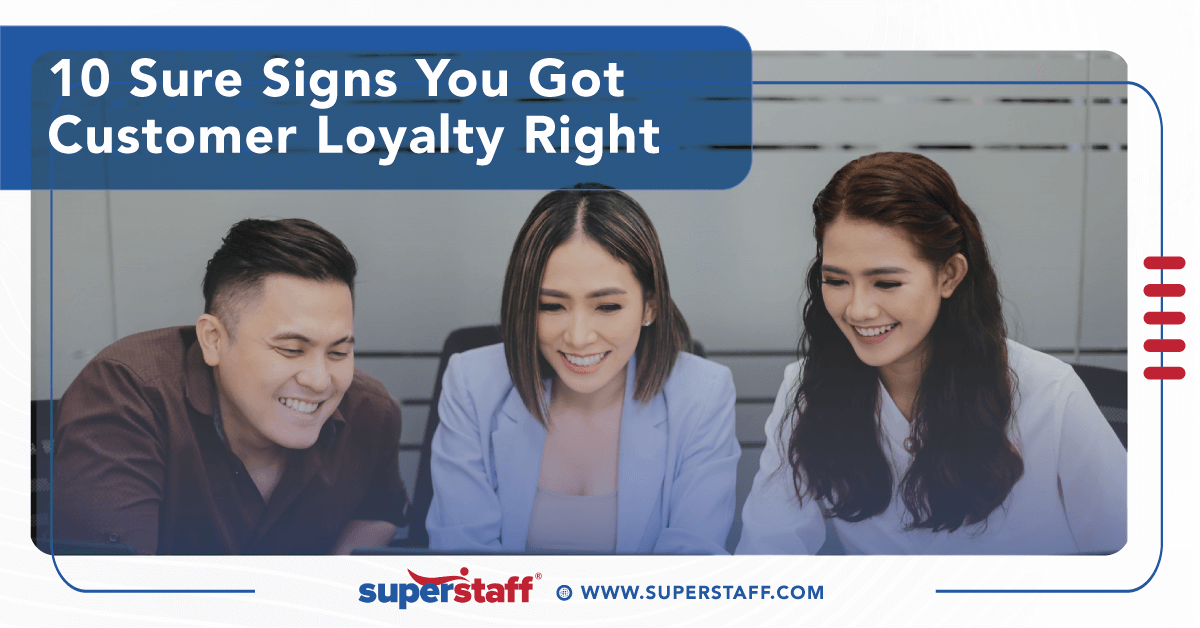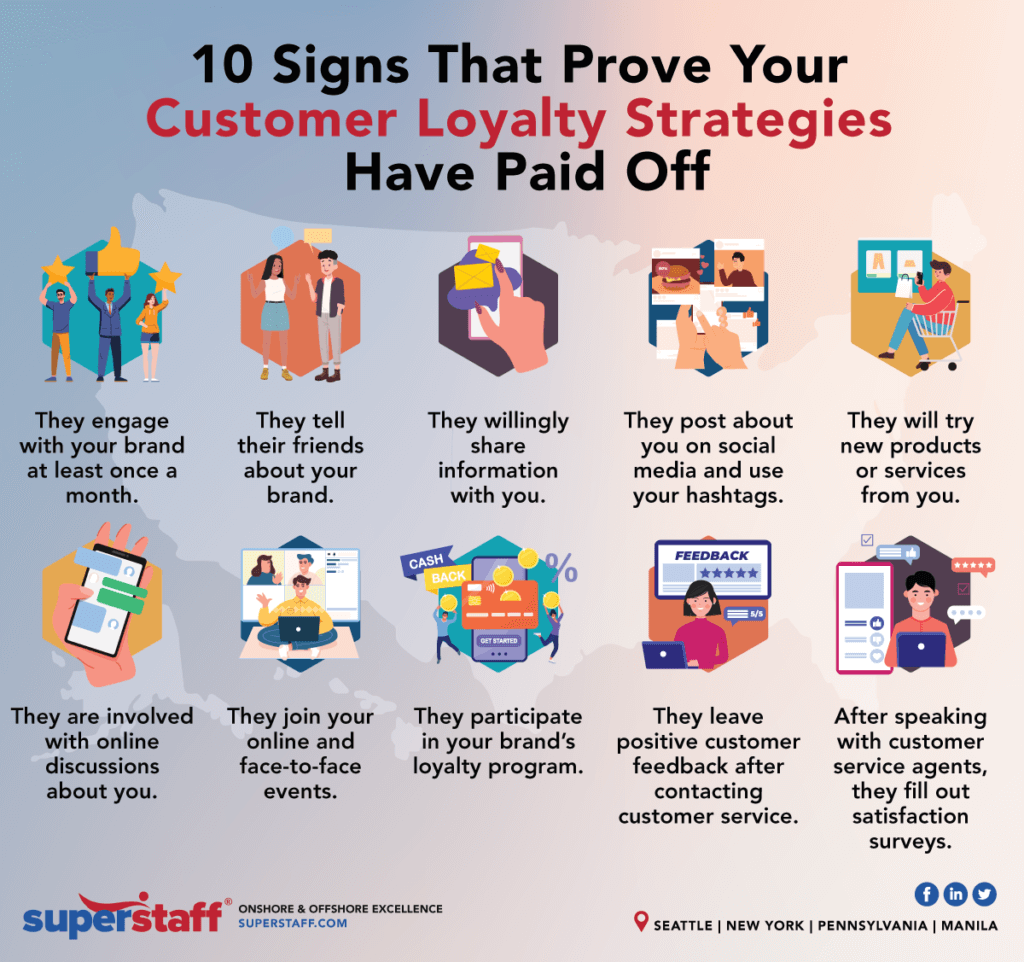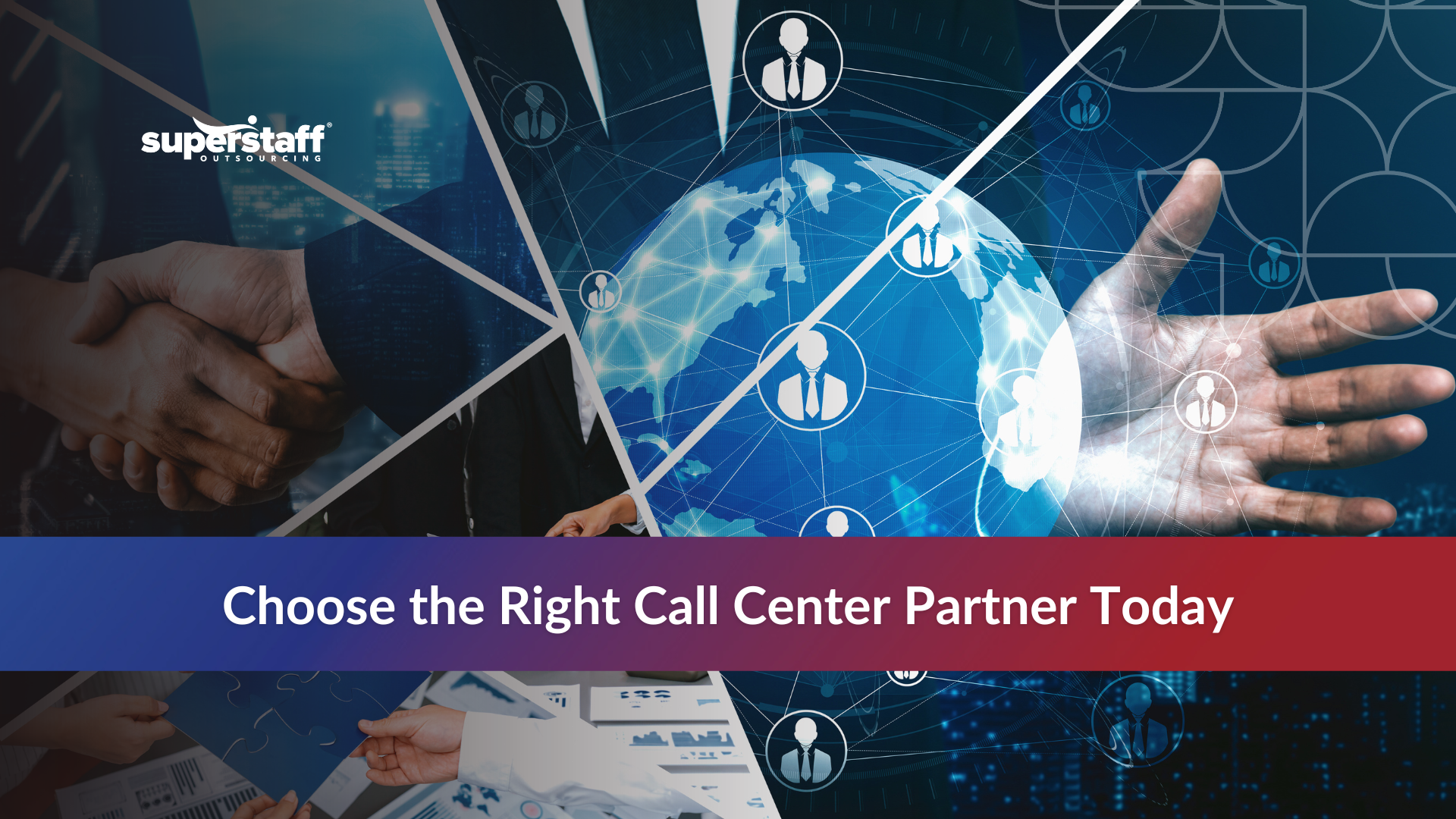
Let’s say you’ve just started a business. Over the first few months, you enjoyed steady growth, but your revenues dropped at a certain point, and you realized you were losing customers.
This situation happens all the time in the business world, filled with peaks and valleys. But, there’s one way to ensure a constant influx of business: Customer Loyalty.
What is Customer Loyalty?
In the simplest sense, customer loyalty involves customers’ willingness to continue doing business solely with your company. It comprises the overall satisfaction from quality offerings, excellent customer service, and positive experiences with your company.
How Does Customer Loyalty Affect Business?
Take a look at these numbers demonstrating how customer loyalty positively impacts business.
- Sixty percent of loyal customers will buy more frequently from their chosen brands.
Loyal customers will drive up business with their repeat purchases. Say, for instance, if a common household item runs out, a loyal customer will buy the same product from the same brand.
- Seventy-seven percent of consumers have maintained loyalty to their preferred companies for 10 or more years.
Loyal customers will stick to their chosen brands for long periods. That would mean that the number of transactions will accumulate with time.
- Consumers spend 67% more in their third year than their first year with a business.
As customers become more used to your brand, they will be more likely to try your other offers. Hence, making your business more profitable.
10 Signs Your Customers Are Loyal to Your Business
#1: They engage with your brand at least once a month.
Customer engagement and customer loyalty are linked but still not the same. Think of customer engagement as a way of communicating with your customers.
It encompasses interactions across all channels that strengthen your ties with customers. Satisfied customers will always find ways to let you know that they are happy with your products and services.
But apart from building customer loyalty, better customer engagement also translates to more profit. Research showed that companies successfully engaging their customers reported 63% lower customer attrition rates and a 55% increase in profit.
#2: They tell their friends about your brand.
Sharing is caring, and word-of-mouth is one of the surest signs that you have your customer’s loyalty. If they use their clout to tell their peers about your brand, you’ve done something right.
Recommendations from a person you know and trust are better than getting advice from someone paid to endorse a product. Sixty-four percent of marketers agree that word-of-mouth is the most effective marketing strategy.
While online advertisements and endorsements from brands and influencers bombard consumers, studies have shown that 81% of consumers still trust family and friends when choosing brands.
#3: They willingly share information with you.
Consumers today are more concerned about protecting their personal information from cyberattacks and data breaches. A study showed that only 8% of consumers would always share their data no matter the circumstances.
If your customers don’t trust you enough, they will not willingly give you their information. Your customers need to know what data is being asked of them and for what purpose. Otherwise, red flags would go up.
For instance, if a random app requests access to your photo gallery with no need for it, would you allow access? Probably not.
However, if you’ve earned customer loyalty and trust over time, your customers will understand that you are using this information to serve them better, and sharing data will not be as big of an issue for them.
#4: They post about you on social media and use your hashtags.
Getting organic social media traffic is another excellent gauge of customer loyalty. With 74% of consumers relying on it to guide their purchase decisions, social media is a huge business driver. It is now more critical than ever, as 58% of people have increased their social media use since the pandemic.
Additionally, it is the only public way a customer can reach out to companies. Sure they can email or call about their excellent feedback, but posting on social media allows them to raise awareness about your brand.
Hashtags are an even better indicator of brand awareness, customer loyalty, and satisfaction. The use of hashtags means that your customers want other people outside of their circles to see their posts about your brand.
Whether it’s your company’s evergreen hashtag (the overarching hashtag representing your entire brand) or campaign hashtags specific to certain products or services you’re featuring, posts with hashtags show that you have #LoyalCustomers.
#5: They will try new products or services from you.
When it comes to ordering in a restaurant, we all have our favorites. But what would it take for you to order differently?
Maybe you’ve been going to that restaurant for some years now, and you know that all the food they serve is worth trying without fail. Or perhaps you have gotten to know the chef and acquired a taste for their cooking. Whatever your reason is, it all boils down to customer loyalty.
The same can be said for any brand on the market. If a customer knows you long enough, they can be sure of your brand’s quality. Your customers would be willing to try the products and services you are upselling and cross-selling.

#6: They are involved with online discussions about you.
How frequently are your customers talking about you, and on what platforms? What products are they often referring to? These metrics are things that you should be closely paying attention to.
Not only do they reflect on how strong your online presence is, but they also show customer loyalty to your brand.
The internet’s reach is infinitely broad. In fact, the number of internet users across the globe is expected to grow to 5.3 billion by 2023. That’s roughly 67% of the entire population. In a matter of hours, a single post can reach millions of people.
Your customers’ willingness to go online and advocate for your products and services tells how much they love your brand. This attitude is just one way how customer loyalty helps businesses.
Read more: 6 Ways Offshore Customer Service Outsourcing Provider Boosts E-commerce Customer Lifetime Value
#7: They join your online and face-to-face events.
Your loyal customers who value meaningful interactions will always come through for you. More than the freebies at events, they will show up because they feel a sense of belonging with your company.
Your customers know that they will meet like-minded people in these events, whether live or online. They will take the opportunity to share positive experiences from your company.
#8: They participate in your brand’s loyalty program.
Acquiring new customers is much more expensive than keeping old ones. This is why brands invest in loyalty and reward programs.
Customer loyalty programs reward repeat customers with points. They can exchange these points for freebies or benefits such as exclusive discounts and VIP treatment. It’s a strategy to keep customers returning to your business instead of going to your competitors.
It’s a win-win for everyone. The customers get something out of it, too. The goal is to encourage them to make repeat purchases and build a relationship of mutual trust with them.
These programs increase customer loyalty. Around 84% of customers say they are more likely to stay with a company that offers a customer loyalty program, while 66% say that earning rewards has changed their spending habits.
Read more: The Importance of Customer Response Time (and How E-Commerce Outsourcing Can Help Improve Your CRT)
#9: They leave positive customer feedback after contacting customer service.
Like any trusted friend, your loyal customers will let you know when they are grateful for your service. They will not hesitate to leave positive feedback after contacting your customer service.
Why is this important? Seventy-seven percent of customers prefer brands that welcome customer feedback. Moreover, insights from customer feedback can help you cut costs by calling attention to some pain points in your services. This is particularly beneficial for ensuring the quality of customer experience, customer loyalty, and satisfaction.
#10: After speaking with customer service agents, they fill out satisfaction surveys.
Only 24.8% of people respond to surveys via email, this number drops further for phone surveys (8-12%).
If you want to assess your customer service agents and decide on doing surveys, you would have to rely on loyal customers who will always take the time to fill out surveys after speaking with customer service agents. This is yet another way how customer loyalty helps business. As your partners, your loyal customers will go out of their way to help you improve your service.
Read more: 5 Requisites to Achieve Excellent Customer Support in the New Normal: A Comprehensive Primer
Worried About Your Customer Loyalty?
Superstaff can provide you with solutions guaranteed to boost your customer loyalty. Our well-trained customer service representatives will strengthen your brand’s ties with its customers.
The next step in achieving customer loyalty is outsourcing a customer support team that prioritizes clients. Contact us today!






